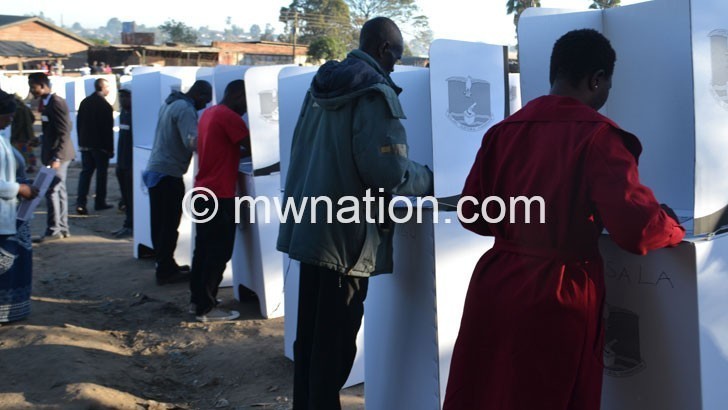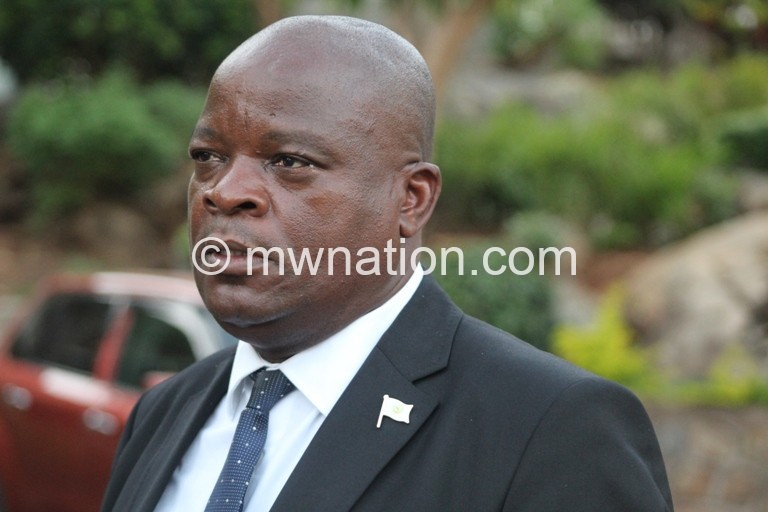Fresh push for federalism
In 2014, Democratic Progressive Party maverick Christopher Mzomera Ngwira stirred a tense debate when he claimed that Malawi was safer divided into federal regions, liberating each to decide its destiny with limited dos and don’ts from Capital Hill.
This is not the everyday stuff regional governors of political parties in power tell journalists.

However, Ngwira sounded peeved by unequal distribution of national resources, asserting that the North would remain the least developed unless freed to determine and pursue its agenda.
The debate marred by regionalism faded just when then president Peter Mutharika called for a healthy debate over the proposal and ordered a State-sponsored inquiry by the Public Affairs Committee. The self-styled democrat and defender of freedom of speech told journalists at Sanjika Palace he could not stop the debate over resurgent calls for big decisions to be made by the proposed regional governments.
By September 2019, Mzimba North legislator Yeremiah Chihana received a backlash tabled a motion proposing constitutional change from the unitary system of government to federalism.
The lawmaker argued that the proposed switch would facilitate equal participation in political decisions and equitable distribution of resources and development across the nation.

In his reasoning, he envisioned his preferred system eliminating regionalism, nepotism and corruption.
This was a second attempt after a similar Bill tabled by Rumphi East legislator Kamlepo Kalua in 2018 was defeated in a heated debate laced with sparks of regionalism.
Then, lawmakers from the North and Centre appeared in support of the proposal as they felt shortchanged by DPP, which had its stronghold in the South.
Now, the federalism conversation has resurfaced with a series of virtual talks convened by the Federalism Institute “to provide a platform for meaningful debate”.
The online discussions on state-building, decentralisation and constitutionalism offer critical perspectives on federalism for inclusive development, gender equality and democracy.
The speakers and audiences dissect the challenges of unitary system and governance in Malawi, warning against the politics of bottom-up social policy and unsustainable local governments amid calls for decentralisation, widely marketed as giving power to the people.

During a recent discussion, United Democratic Front ex-president Atupele Muluzi argued that the current system is not working for the benefit of Malawians, especially the rural majority.
The former Cabinet minister said highly centralised decision-making delays the delivery of public services and gives undue power to a few individuals to control the public purse.
According to Muluzi, a federal system would provide for better accountability, transparency and equal distribution of State resources.
“But that can only be achieved by amending the Constitution and calling for a referendum,” he said.
Malawi inherited the unitary system from its British colonial masters in 1964 when the country had just about four million people.
Muluzi feels Capital Hill rule, which concentrates power in the office of the President and Cabinet, has become redundant as the country now has a population of about 20 million.
He argued: “This means there is an increased demand for public services and development needs of the citizens.
“Therefore, the push for the adoption of a federal system of government should not be based on regionalism but rather population and national economic growth.”
Dr Bina Shaba, president of the United Federal Movement, dialled up the federal system as much better than the unitary system currently in use.
He said federalism comes with necessary architecture to accelerate the socio-economic development of the country’s political regions partitioned by Britain.
In his mind, he envisions his desired shift devolving power into the federal States, ending central government’s monopoly over the national cake.
He explained: “The devolved powers will allow the regions, which will be converted into federal states, to mobilise their resources for development without being hindered or controlled by the central government.
“The highly centralised unitary form of government is ineffective in dealing with contingencies in most parts of the country because power is concentrated at Capital Hill which results in inequitable development among the different regions.”
Shaba stated that the distribution of resources and development projects in the country remains uneven and inequitable because the movers and shakers at Capital Hill find it difficult to reach and respond to the needs of all Malawians, especially those in rural areas.
While the central government adopted the National Decentralisation Policy of 1998 in response to this dilemma in governance, Shaba says federalism could be more effective.
He states: “Federalism provides a constitutional organisation that allows action by a shared government for certain common purposes while permitting for autonomous action by constituent units of government for purposes that relate to preserving their distinctiveness, with each level directly responsible to its electorate.”
Lusungu Mwakhwawa, founder of Federalism Institute, champions the switch to a federal system by 2025, when Malawians go to the polls to elect the next president, members of parliaments and ward councillors.
He proposes that the transition to a federal state be staggered into two phases starting 2023 for diligent examination of proposed constitutional changes, discussions and exchanges of ideas nationwide.
“We need to act on the proposed changes together as one nation, not based on regional lines,” he says.
Despite the push, an opinion poll by Afrobarometer in 2020 indicated 78 percent of Malawians reject the proposal to adopt a federal system of government.
Despite the overwhelming snub, the researchers report that more than half (51 percent) of Malawians said their respective ethnic groups are treated unfairly by the government.
“The idea of adopting a federal system of government as an alternative to the current unitary system is overwhelmingly rejected by Malawians, including 66 percent who strongly disagree. Only 21 percent of respondents support the proposed constitutional change,” the pollster reports.
However, there was a caveat.
The researchers noted that many Malawians do not appreciate the complexities of the proposed federal system because of low literacy levels.
They recommended that the proponents of Chihana’s motion needed have conducted more civic education instead of attempting to rush the change through Parliament.
To the brains behind the opinion poll, one thing for sure though, policymakers need to create mechanisms to address the grievances within the unitary system of government.





